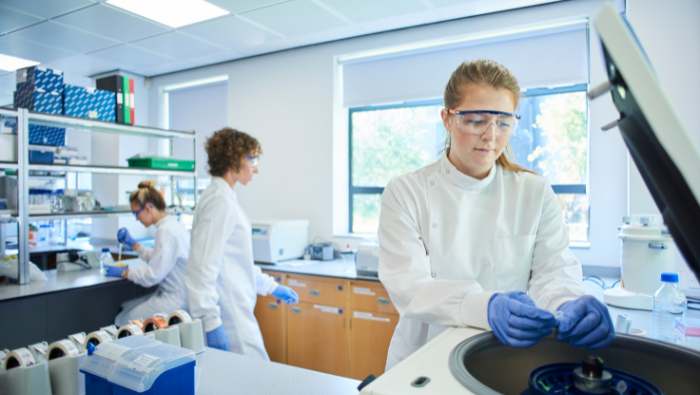Genetic Discovery May Pave the Way for Precision Medicine Approaches to Treat Depression
Depression is a mental disorder that affects millions of people worldwide.
It is a leading cause of disability and a major contributor to the global disease burden.
Despite significant progress in understanding the neurobiological basis of depression, the etiology and pathophysiology of the disorder remain poorly understood.
Recent advances in genetics and genomics have shed new light on the biological basis of depression, paving the way for precision medicine approaches to treating this complex disorder.
This article discusses a recent genetic discovery that may hold promise for developing new treatments for depression.
Depression is a common mental disorder that affects people of all ages and backgrounds.
It is characterized by persistent sadness, loss of interest or pleasure, feelings of worthlessness or guilt, and other symptoms that significantly impair an individual’s ability to function in daily life.
Depression is a leading cause of disability and a significant contributor to the global disease burden.
According to the World Health Organization (WHO), more than 264 million people worldwide suffer from depression, which is expected to rise in the coming years.
The Role of Genetics in Depression
Depression is a complex disorder influenced by genetic and environmental factors.
Studies have shown that genetic factors account for approximately 40-50% of the risk of developing depression.
Recent advances in genetics and genomics have identified several genes and genetic variants associated with an increased risk of depression.
These genetic findings have provided new insights into the biological basis of depression and paved the way for new treatments.
A Recent Genetic Discovery
A recent study published in the journal Nature Communications identified a genetic variant associated with an increased risk of depression.
The study, conducted by a team of researchers from the University of Edinburgh, analyzed genetic data from over 300,000 individuals and identified a genetic variant located on chromosome 10 associated with an increased risk of depression.
The genetic variant is located near a gene called LINC00598, which regulates the immune system.
Implications for Precision Medicine
The discovery of this genetic variant may have significant implications for the development of new treatments for depression.
The immune system has been shown to play a role in the development and progression of depression, and targeting immune-related pathways may represent a promising approach for treating the disorder.
Identifying this genetic variant provides a potential target for developing new drugs that can modulate the immune system and treat depression more effectively.
Conclusion
Depression is a leading cause of disability and a significant contributor to the global burden of disease, affecting millions of people worldwide.
While the etiology and pathophysiology of depression remain poorly understood, recent advances in genetics and genomics have shed new light on the biological basis of the disorder.
In conclusion, the current genetic discovery of a variant associated with an increased risk of depression may pave the way for precision medicine approaches to treat this complex disorder.
Identifying this genetic variant provides a potential target for developing new drugs that can modulate the immune system and treat depression more effectively.
Precision medicine approaches hold promise for developing new treatments for depression by targeting specific biological pathways involved in the disorder.
Further research is needed to understand the implications of this genetic discovery fully and to develop new treatments for depression that can benefit millions of people worldwide.
FAQs
Q: What is depression?
A: Depression is a mental disorder characterized by persistent sadness, loss of interest or pleasure, feelings of worthlessness or guilt, and other symptoms that significantly impair an individual’s ability to function in daily life.
Q: What is the role of genetics in depression?
A: Genetic factors account for approximately 40-50% of the risk of developing depression.
Q: What is the recent genetic discovery related to depression?
A: A recent study has identified a genetic variant located on chromosome 10 that is associated with an increased risk of depression.
Q: How may this genetic discovery impact the treatment of depression?
A: The discovery of this genetic variant may provide a potential target for developing new drugs that can modulate the immune system and treat depression more effectively.
Q: Can depression be treated with precision medicine approaches?
A: Precision medicine approaches hold promise for developing new treatments for depression by targeting specific biological pathways involved in the disorder.
Q: What is the global burden of depression?
A: Depression is a leading cause of disability and a significant contributor to the global disease burden, affecting more than 264 million people worldwide.
Q: What is the immune system’s role in depression?
A: The immune system has been shown to play a role in the development and progression of depression, and targeting immune-related pathways may represent a promising approach for treating the disorder.
Q: What are some of the environmental factors that contribute to depression?
A: Environmental factors like stress, trauma, and life events can also contribute to depression.
Q: How can genetic discoveries be used to develop new treatments for depression?
A: Genetic discoveries can provide potential targets for developing new drugs that can modulate specific biological pathways involved in the disorder, leading to more effective treatments for depression.
You may also enjoy…
The Cause of Depression is Probably Not What You Think
The Revolutionary Low-Carb Diet as a Solution to Obesity and Type 2 Diabetes








